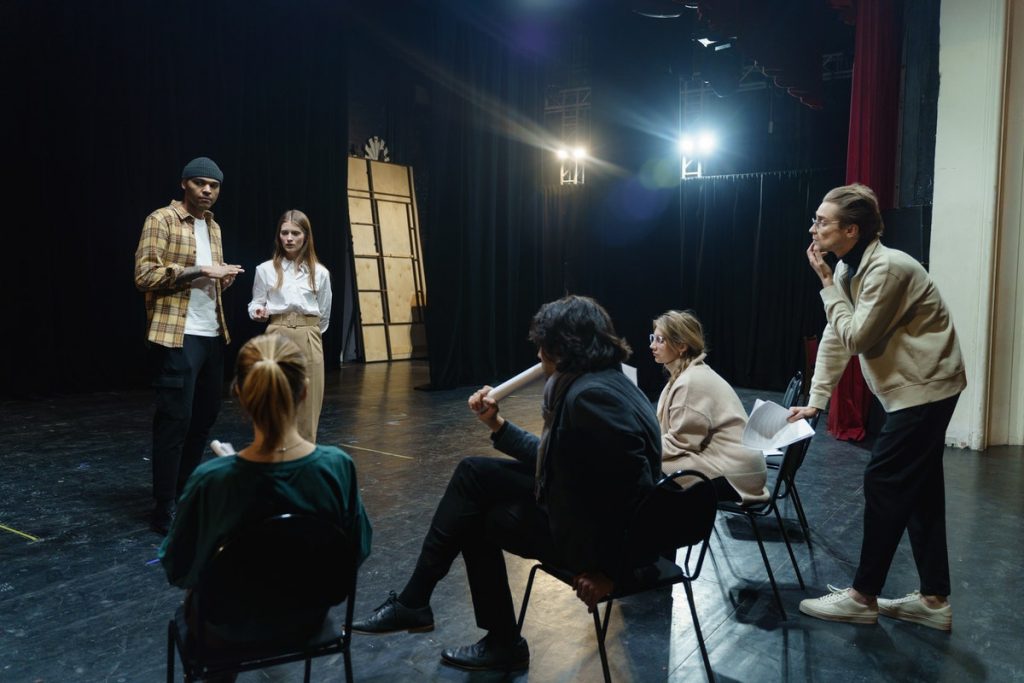Are you a mother who is interested in pursuing an acting career? If so, this blog post is for you. As an aspiring actor, one of the most important things you can do is prepare for auditions.
Here, we’ll discuss some tips on how to best prepare yourself for your audition:
1. Research the Role and the Play
You can sometimes be surprised by what a director is looking for in a character, so always research the character.
Find out things like, what does this character want? What are they doing to get it? Do they have any traits or mannerisms that you might not know about yet but might need to know for the audition?
One great way to research a character for an audition is to read the play in which they appear. This will give you a good sense of the context and world in which they live. It can also help you understand the character’s motivations and goals. You might even want to watch productions of the play online or in the theater to get a better sense of how they are portrayed onstage.

2. Do Your Homework
Just like you did your research on the character and play, do some background on where and when this audition will take place, as well as the requirements.
For instance, does the audition call for specific items such as a guitar, or can you use one? If so, you should learn how to play it! Will the casting crew provide the props? Will you be acting with someone?
Save some time during the audition and avoid being thrown off by a lack of preparation.
3. Get to Know the Other Actors
It’s always nice to meet new people, but auditioning with strangers can be tricky. You don’t want to act too familiar with one another because it could come off as unprofessional. On the flip side, you also don’t want to act like complete strangers either because that will feel awkward.
When auditioning with a partner, make an effort to chat before the audition starts. If you can meet beforehand and read through your scene together, even better! You want to feel like you know the person on some level before you start acting.
4. Listen to the Director’s Instructions Carefully
The director will be giving you specific directions for how they want things to happen. So, listen up!
At the same time, don’t take things too literally either because sometimes directors might tell you something just to get a certain response. Directors are usually looking for an interpretation of the moment and not necessarily exactly what they say.
5. Practice Your Lines
Before your audition, run through your lines as much as possible. You want to feel comfortable with the words before you get in front of the casting staff. In addition, if you can memorize your lines quickly, it will show what a committed actor you are.
Repetition is key when it comes to memorizing lines. You might want to try drilling yourself in a mirror or recording yourself reading the lines and then playing them back. The more you practice, the easier it will be to remember the words when you need them.
If you feel overwhelmed by all the lines at once, try breaking them down into smaller chunks. This will make it easier for your brain to process and remember each individual part.
When learning your lines, try associating different images with each line or phrase. This can help imprint the words in your memory and make them easier to recall.
Lastly, try not to rely on props or blocking for cues. There’s a chance that your prop could be missing or the director might ask you to move somewhere else entirely. You don’t want to be caught unprepared because you were relying on something that wasn’t there.
6. Get Feedback
After the audition, you should feel confident in your ability to showcase your skills as an actor. Feedback from casting directors can help you hone those acting skills even more.
Even if the feedback is negative or if they didn’t choose you for the role, avoid being discouraged. Actors are often turned down for roles, but that doesn’t mean they are not talented. Many factors go into choosing the best actor for the role that don’t always include their skills on an audition tape.
Instead of dwelling on why you didn’t get cast, think about what you will do differently next time. Did the casting crew tell you anything about your performance during the audition? Sometimes they can give you a clue as to why you didn’t get cast.
Keep working on your craft and use any feedback from the casting directors to improve. Take the suggestions to heart and incorporate them into your next audition. Auditions can be a time for trial and error, so don’t let one bad experience discourage you from acting altogether!




